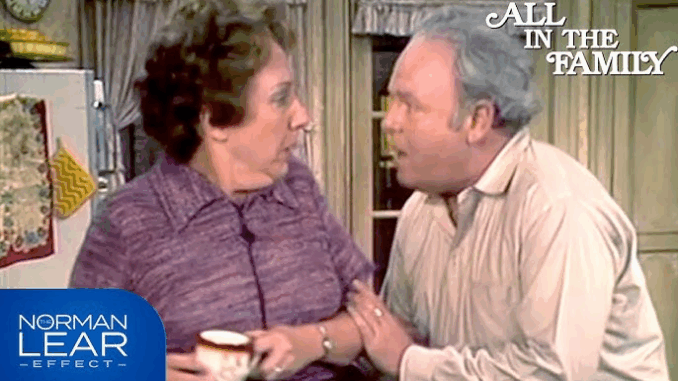
When All in the Family premiered on CBS on January 12, 1971, television—and America—would never be the same. Created by Norman Lear and Bud Yorkin, the show broke ground with its candid approach to social issues, pioneering a genre of sitcom that was both funny and fiercely relevant.
At the heart of All in the Family was Archie Bunker, played with unforgettable depth and comic timing by Carroll O’Connor. A working-class, World War II veteran with deeply conservative views, Archie became an emblem of a conflicted America grappling with race, gender roles, and political change. His frequent clashes with his liberal son-in-law, Michael “Meathead” Stivic (Rob Reiner), served not only as comic gold but also as a mirror to real-life generational and ideological tensions.
Jean Stapleton’s portrayal of Edith Bunker, Archie’s kind-hearted and often underestimated wife, added layers of emotional warmth and quiet resistance. Sally Struthers, as their daughter Gloria, brought both passion and vulnerability to the family dynamic, rounding out a cast that became iconic in American households.
What set All in the Family apart was its willingness to confront taboo subjects: racism, abortion, women’s rights, homosexuality, and the Vietnam War—topics previously considered off-limits for sitcoms. Rather than avoiding controversy, the show leaned into it, using humor as a vehicle for social commentary. It didn’t preach; it provoked, often leaving audiences laughing and squirming in the same breath.
The show was a massive success. It was the number one program in America for five consecutive seasons and won four Emmy Awards for Outstanding Comedy Series. But beyond the accolades, its cultural impact was profound. It opened the door for a wave of socially conscious television, influencing shows like Maude, The Jeffersons (a direct spin-off), and even modern-day hits like Black-ish and The Conners.
More than five decades later, All in the Family remains a touchstone in television history. Its influence is still felt, its episodes still resonate, and its boldness is still unmatched. In a landscape increasingly shaped by nostalgia and reboot culture, All in the Family stands as a reminder of how powerful television can be when it dares to speak honestly to its time.
